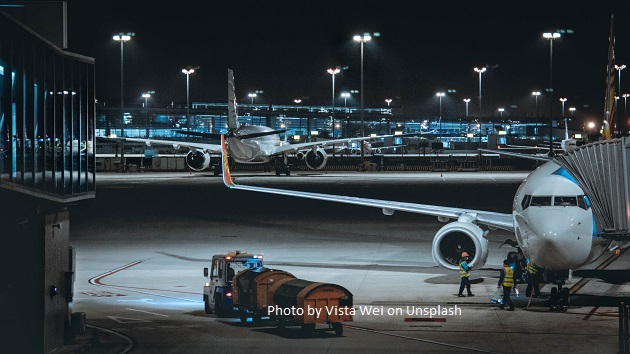We, as NGOs, refugee-led organisations and members of the Afghan diaspora in Europe, are deeply concerned about the increased conflict and violence in Afghanistan. Amidst the deteriorating security situation, we call on all European countries to stop deportations to Afghanistan, ensure access to protection for Afghans on their territory and focus on measures to prevent a further escalation of violence inside Afghanistan.
The security situation in Afghanistan does not allow to return people to the country without putting their life at risk. After two decades, the US-led international military presence in Afghanistan will officially come to an end in September 2021. European and NATO countries are withdrawing their troops from Afghanistan at a time when the security situation is appalling. Heavy fighting continues across the country and Taliban fighters have taken control of many districts. More than 50% of Afghanistan’s territory is now either contested or in Taliban control.
In response to the withdrawal of US and NATO troops from Afghanistan, the already dire security situation throughout the country is further deteriorating, with a high level of violence against civilians including targeted killings of civil society activists and journalists in Afghanistan. According to a recent report from the United Nations Assistance Mission in Afghanistan (UNAMA), the total number of casualties during the first quarter of 2021 was 1.783 (573 killed and 1210 injured), illustrating a 29% increase compared to the same period in 2020. The report shockingly shows a significant increase in the number of casualties among women and children compared to the first quarter of 2020.
According to European Civil Protection and Humanitarian Aid Operations (ECHO), spring drought and withdrawal of international troops could increase the number of people in need of humanitarian assistance to 18.5 million. The UN Office on Humanitarian Affairs (OCHA) estimated that 500,000 people would be forcibly displaced due to conflicts in 2021. According to IOM, in the period between January 2021 and July 2021 there have been 627.979 returns, including deportations from Iran and Pakistan alone. The Covid-19 pandemic further exacerbated the situation.
In a letter sent to the EU delegation and European embassies in Afghanistan, the Afghan government informed the EU and European governments about the Ministry of Refugees and Repatriation’s (MoRR) decision to stop accepting deportations to Afghanistan until 8 October 2021 due to security concerns and the impact of Covid-19 on the health sector and the economy. Several European countries respect the Afghan government’s call and have ceased deportations to Afghanistan, while a number of European countries are pushing to continue deportations to a war-torn country.
The worsening security situation in the country further heightens our concerns about the fate of people who are returned. During this crucial time for Afghanistan, European countries should focus on preventing a further escalation of atrocities and violence and stand in solidarity with Afghanistan and its people through providing protection for Afghans in Europe and through supporting an intra-Afghan peace process that should take into account the achievement of the past 20 years, particularly the advancement in the rights of women and minorities.
We therefore call on:
- European countries to immediately cease deportations to Afghanistan due to the security situation and the challenges that returnees face in the country.
- European Commission to recommend to its member states an immediate halt of deportations to Afghanistan in response to the letter sent to the EU delegation in Afghanistan.
- Frontex to suspend coordination of charter flights for return operations to Afghanistan.
- Immigration offices and courts in European countries to ensure up to date country information is used in asylum and return processes, in view of recent security developments in Afghanistan.
- European countries should reexamine all final negative decisions for Afghan asylum seekers still present in European countries in the light of the current situation in Afghanistan and foreseeable risks of future persecution being identified as a result of this new situation.
- European countries to refrain from applying the concept of Internal Protection Alternative (IPA) in Afghanistan as there is no safe area or city in the country.
- The EU to use all of its leverage to prevent renewed wartime atrocities, following the withdrawal of international troops and to develop proposals for the EU to prevent further escalation of conflicts.
- The EU should not be a mere observer of the deteriorating situation in Afghanistan; as one of the main developments and humanitarian donor in the country, its priority should be to protect the achievement of the past 20 years, particularly the right of women and minorities through supporting an inclusive peace process.
- The EU and European countries to admit their local staff including their families to Europe without delay and provide them with protection status as their lives will be in danger following the withdrawal of international troops from the country.
- European countries to increase resettlement places for vulnerable Afghans refugees in Iran and Pakistan.
Signed by:
Afghan Association in Sweden
ACEIR
Afghan Lawyers association in Denmark
Afghan Refugees Experts Network in Europe
Afghan Wulas Kultur & Sport Verein
Asia Displacement Solutions Platform
Africa Solidarity Centre Ireland
Athens Comics Library
Asylex
Bee4change e.V.
British and Irish Agencies Afghanistan Group
Bureau for Rights-based Development (BRD)-Sweden
Caritas Europa
Centre for Peace Studies
Danish Refugee Council
Das Afghanistan Komitee für Frieden, Wiederaufbau und Kultur e.V.
Dutch Council for Refugees
European Council on Refugees and Exiles
European-Global Civil Society Organisation
The Swedish Network of Refugee Support Groups, FARR
Female Fellows
France terre d’asile
gafca – German Association for Central Asia e.V.
Human Rights Watch
IDEAS
IEZ7-2
International Rescue Committee
Mosaico
Norwegian Refugee Council
Irida Women’s Center
Koraki
NOAS
Oxfam
Passerell
Portuguese Refugee Council
PROASYL
Project Armonia
Rahela Trust
Refugee Trauma Initiative
Save the Children
She for She
Refugees International
Samos Volunteers
Swiss Refugee Council
Symbiosis
UNIRE
Verband Afghanischer Organisationen in Deutschland e.V.
YAAR e.V.
ZAN Hilfsorganisation zur Förderung der Rechte afghanischer Frauen e.V.
Download Joint Statement

